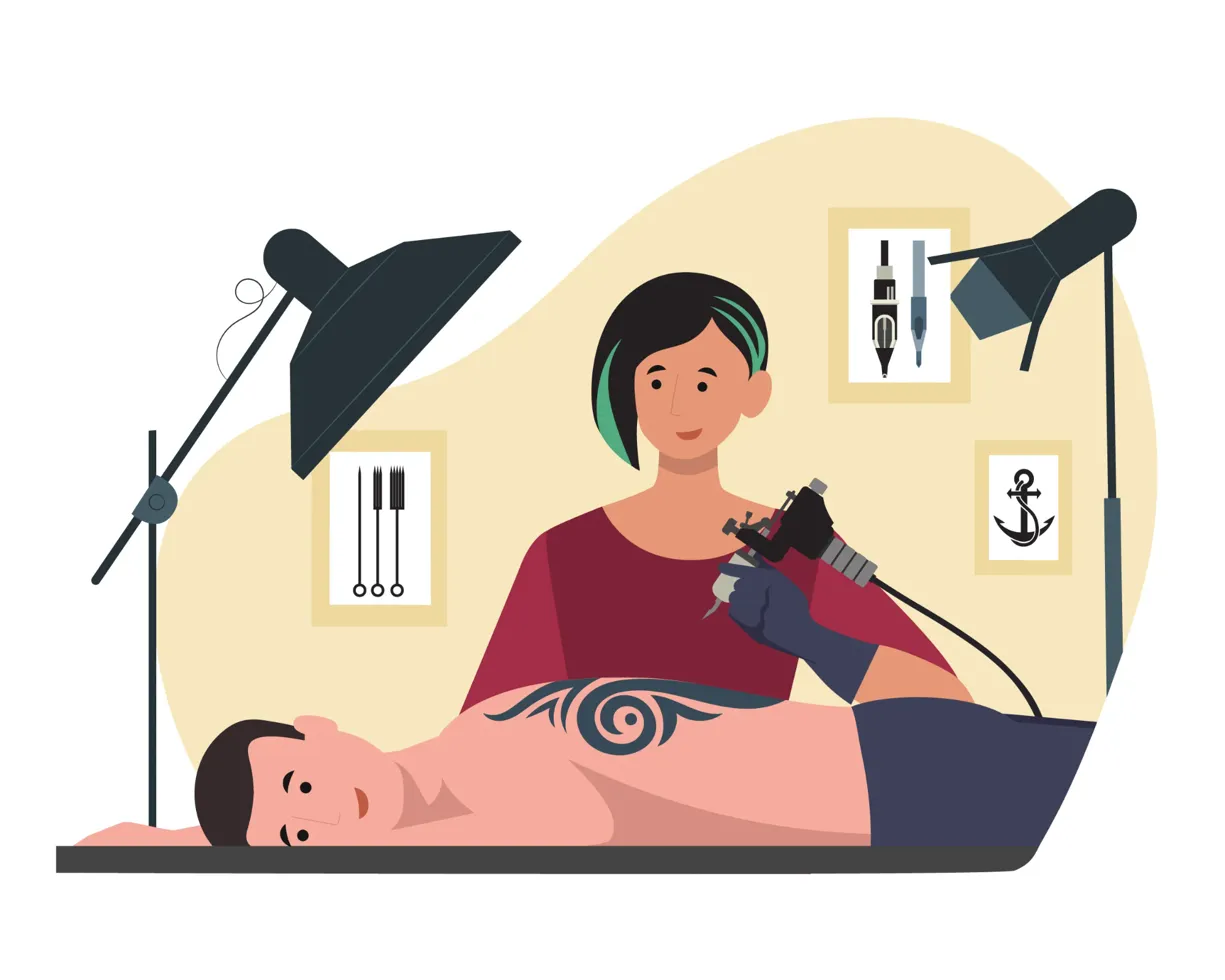Tattoos are considered to be permanent, but some people do not want to wear them permanently. Though professional methods such as top laser tattoo removal in Melbourne may provide relief, the costs can sometimes be exorbitant. Many are tempted to find alternative ways of having a tattoo removed, such as natural or at-home tattoo removal techniques, in the hope that these methods could be cheaper. But do these methods actually work, and are they safe? Let’s break it down.
Common Natural Tattoo Removal Methods
Slight fading may occur at home but this is sometimes the case, depending on the age of the tattoo, should whether it is already disintegrating in a natural way. Tattoo fading can be affected by exfoliation and the passage of time, but a tattoo can be cleaned up at home. The short-term results usually do not match the severity of the damage inflicted on the body.
1. Home Remedies
The following techniques are primarily surface-acting and cannot penetrate to the ink in the lower dermis. Typical solutions are:
- Lemon juice: Used by placing directly on skin over a tattoo because of the natural bleaching effect it has. It can have a slightly lightening effect on the skin, yet dries it and irritates it.
- Aloe Vera: May be mixed with yogurt or honey and smeared on as a paste. Thought to be good at calming the skin, it, however, fails to remove ink.
- Honey: It is applied singly, and also combined with other substances like cowrie shells, and others, as a natural fading cream. Does not provide any practical ink-removing attributes.
- Vinegar: Applied to the tattoo by dripping or soaking. It is very acidic, which can burn the skin on overuse.
- Salt scrubs (Sal abrasion): The coarse salt is rubbed on the tattoo to slough off skin layers. Very painful, rough and increases the chances of infection.
- Sand powder or grinding stone (traditional method): Sandpapering the skin that is tattooed. The chance of permanent scarring is tremendous.
- Herbs pastes (garlic, turmeric, or natural oils): Occasionally implied as a detoxifier, but do not have scientific evidence to back ink removal.
2. Tattoo Removal Creams
Numerous creams are sold as tattoo fading products. In real life, they just lighten skin pigmentations and do not break ink. They are not FDA-approved and they do not have scientifically proven evidence. They are best because they cause slight fading to the tattoo, or at worst, cause irritation or allergies.
3. Chemical Approaches
There are more severe DIY approaches, such as the use of harsh chemicals, like trichloroacetic acid (TCA) or bleaching agents. These are able to peel off superficial skin, yet they are risky: they cause burns, permanent scarring, and irregular skin complexion. Chemicals should not be used at home and thus dermatologists discourage this seriously.
What is the Most Effective Tattoo Removal Method?
The safest and most effective procedure is laser tattoo removal. The laser separates ink particles into minute shreds which are eliminated by the immune system as time goes by.
Alternating techniques are:
- Surgical excision: Removing the tattooed skin (perfect but leaves a scar)
- Dermabrasion: Sanding off the skin (not as precise, leaves scarring)
Is Tattoo Removal 100% Successful?
The professional laser treatment cannot always ensure their complete removal. Success is influenced by such factors as ink color, depth of the tattoo, age, and location. Black ink typically fades best and color such as green or yellow are more difficult to erase. Even less reliable and unlikely to produce complete removal are natural directions.
What Are the Side Effects of Tattoo Removal?
- Natural/Home Methods: Burns, rashes, skin irritation, infections and permanent scarring
- Professional Techniques: Transient redness, swelling, blistering, pain of low power
Natural techniques may produce more serious and permanent side effects than professional care.
What is the Cheapest Way to Remove a Permanent Tattoo?
The natural approaches are less costly yet they are not effective. Professional tattoo removal is more expensive, but it yields real results. The lowest professional rates are according to the size of the tattoo:
- Small tattoos: approximately between 75$ to 150$ per session
- Medium tattoos: 200$ to 300$ each session
- Bigger Tattoos: 400$+ / session
The average removal process can take 6 to 10 sessions and thus removal is an expensive undertaking. Other clinics provide packages or financing to make it more affordable.
Conclusion
Tattoo removal methods developed at home may be appealing because of their lower cost, but they are still not effective in tattoo removal and are often accompanied by such risks as skin burning. When considering eliminating the tattoo, you would be better advised to talk to a licensed member of the team to plan the safest and most effective action.

